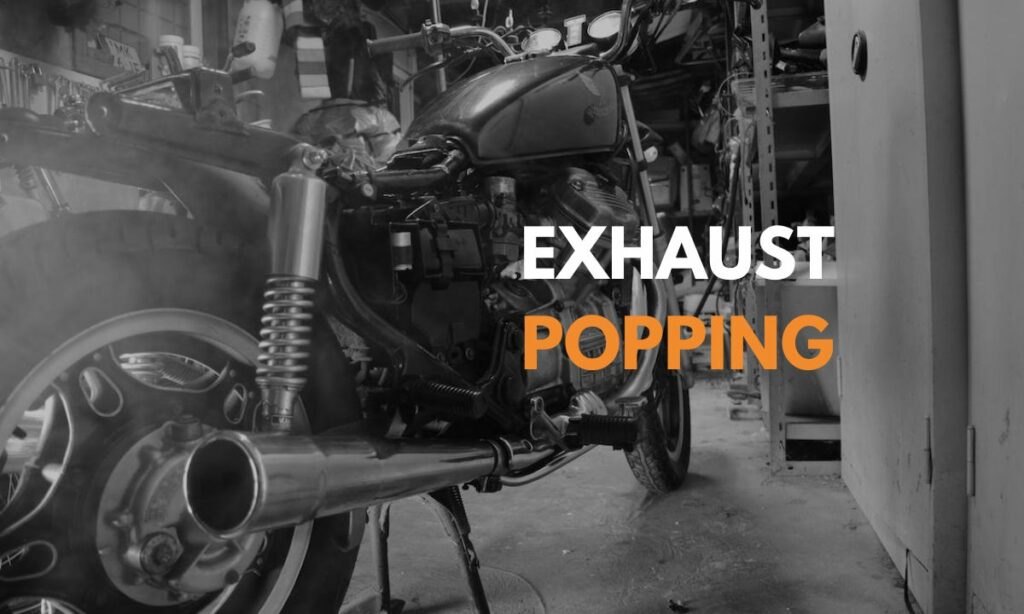You might have noticed whenever you accelerate your motorcycle and let off the throttle, your exhaust starts popping.
The bike runs great and idles smoothly, but the exhaust pops.
Why does motorcycle exhaust keep popping?
In a high-flowing exhaust system, the hot air detonates any unburnt fuel coming into the exhaust. This detonation of the unburnt fuel produces a pop-pop sound, more commonly called exhaust popping.
That’s the short version.
Let’s deep dive into its causes, how common it is, its negative impact, and solutions.
What is exhaust popping?
The exhaust popping is nothing but the pop-pop sound coming from the motorcycle exhaust.
The popping occurs when the unburnt fuel mixes with hot air in the exhaust and detonates.
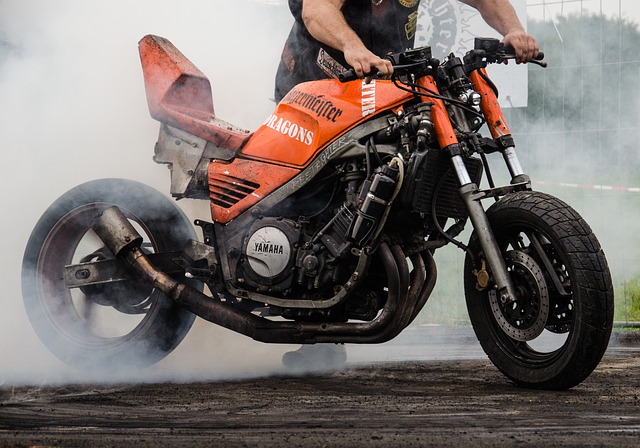
With a high-flowing exhaust system, fresh air can be drawn back into the exhaust system. And the unburnt fuel that comes out of the engine to the exhaust, mixes with the higher-temperature air in the exhaust.
And when this unburnt fuel meets the high-temperature air, the detonation happens – resulting in popping.
In short, the exhaust popping is unburnt fuel getting burnt in the exhaust.
Not in the engine, but in the exhaust.
What causes exhaust popping in motorcycles?
Motorcycle exhaust popping happens because of these main reasons:
#1. Unburnt fuel in the exhaust
Unburnt fuel in the exhaust is the main reason for exhaust popping.
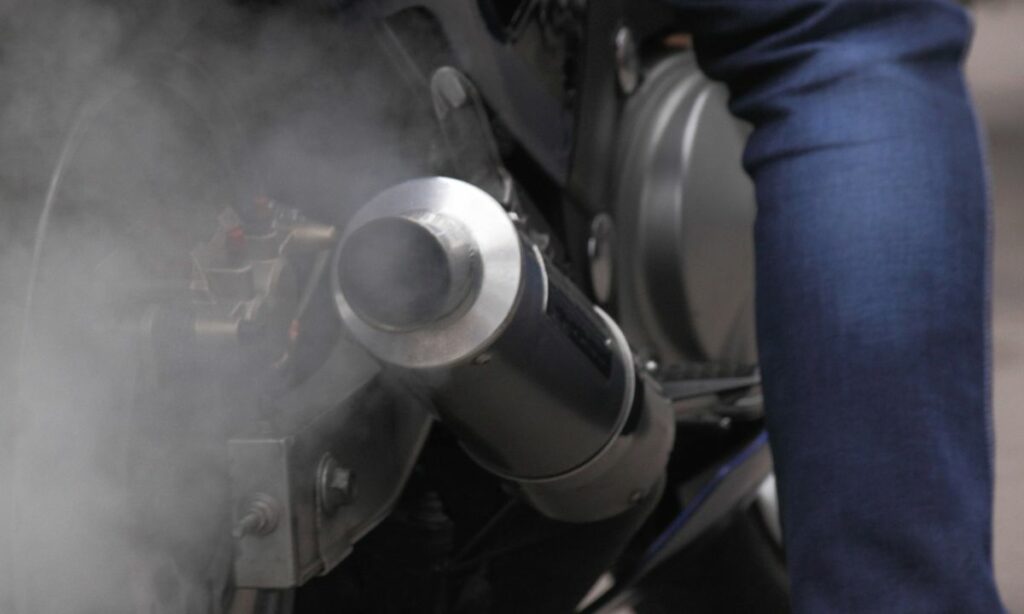
This is a more common occurrence in a carburetted engine than in a fuel-injected engine.
This is because, in a fuel injection system, the air-fuel ratio constantly changes depending on the engine requirements.
The changes in the ratio are made by the ECU which continuously collects data from various sensors in the motorcycle.
Carburetted motorcycles, on the other hand, do not have such an evolved fuel injection system.
The air-fuel ratio entirely depends on the tuning of the carburetor fixed by the operator.
So, whenever the rider decelerates the bike suddenly, there is a chance of fuel not getting burnt completely in the combustion chamber.
As a result, a small amount of unburnt fuel will flow to the exhaust system.
This is especially applicable when the carburetor tuning is not properly adjusted to the riding conditions.
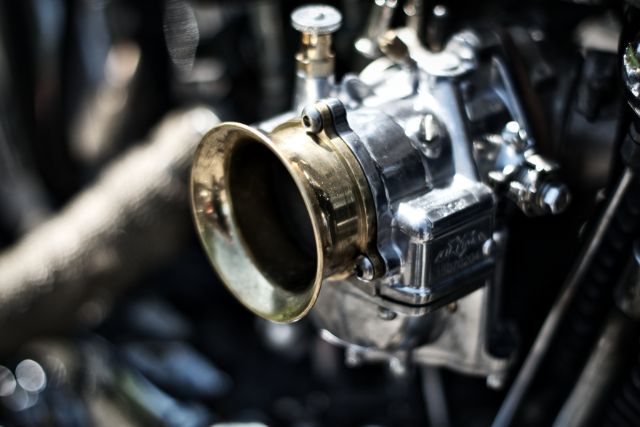
That’s why, carburetted motorcycles are more prone to popping in the exhaust whenever you decelerate than a motorcycle with a fuel injector.
#2. Excessive air in the exhaust system
The presence of excessive amounts of air in the exhaust system is another cause.
This is possible only when you have a high-flowing exhaust system.
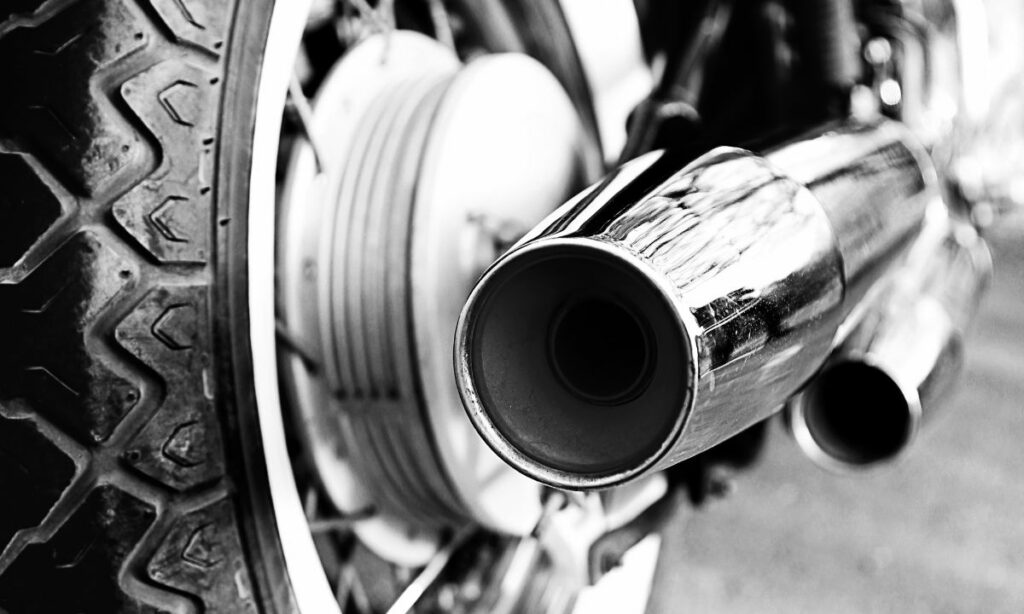
If your motorcycle has a larger opening at the back and a short pipe, then it has high flowing exhaust system.
Decel popping, i.e. exhaust popping during deceleration, is in fact a common phenomenon in motorcycles with high-flowing exhaust systems.
The shorter the length of the exhaust pipe and the larger its opening, the higher the air flowing in the exhaust.
Many modern motorcycles have robust mufflers which restrict the entry of air coming from the exhaust opening.
These mufflers act as restrictive barricades in letting the air come back into the exhaust system.
But on a high-flowing exhaust system, where air can enter the exhaust easily, a high amount of decel popping can be experienced in the motorcycles.
#3. Rich or lean fuel mixture
For optimum combustion, the engine requires the air and fuel to be mixed in a stoichiometric ratio of 14.7 to 1 by weight.
If the fuel proportion exceeds 1, you have a rich fuel mixture.
And if the air proportion exceeds 14.7, you have a lean mixture.
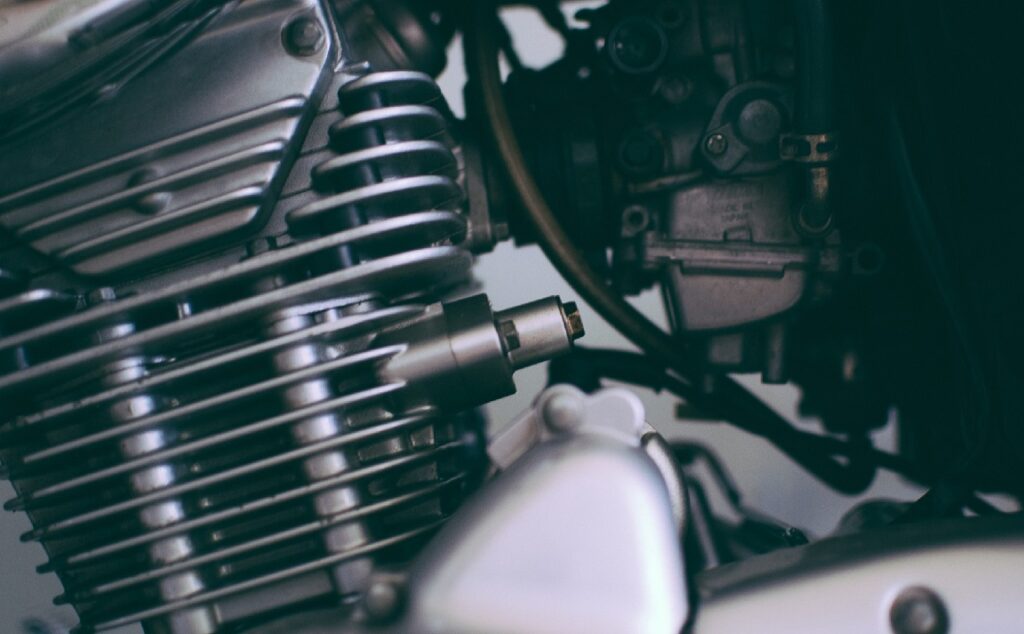
When a rich air-fuel mixture enters the engine, the fuel won’t burn completely.
The excess fuel which remained unburnt, goes to the exhaust and detonates, which leads to exhaust popping.
A lean air-fuel mixture can cause popping as well.
When there is too much air in the engine, the fuel gets clouded by the air in the combustion chamber and as a result, does not get burned completely in the engine.
This unburnt fuel when reaches the exhaust detonates to cause popping.
In short, both rich and lean air-fuel mixture can cause exhaust popping in motorcycles.
Does popping happen in every motorcycle?
Exhaust popping does NOT happen in every motorcycle.
Popping is more common in high-flowing exhausts than in low-flowing exhausts.
A low-flowing exhaust pipe has a smaller opening and is larger in length, the air flowing in the exhaust is kept to a minimum.
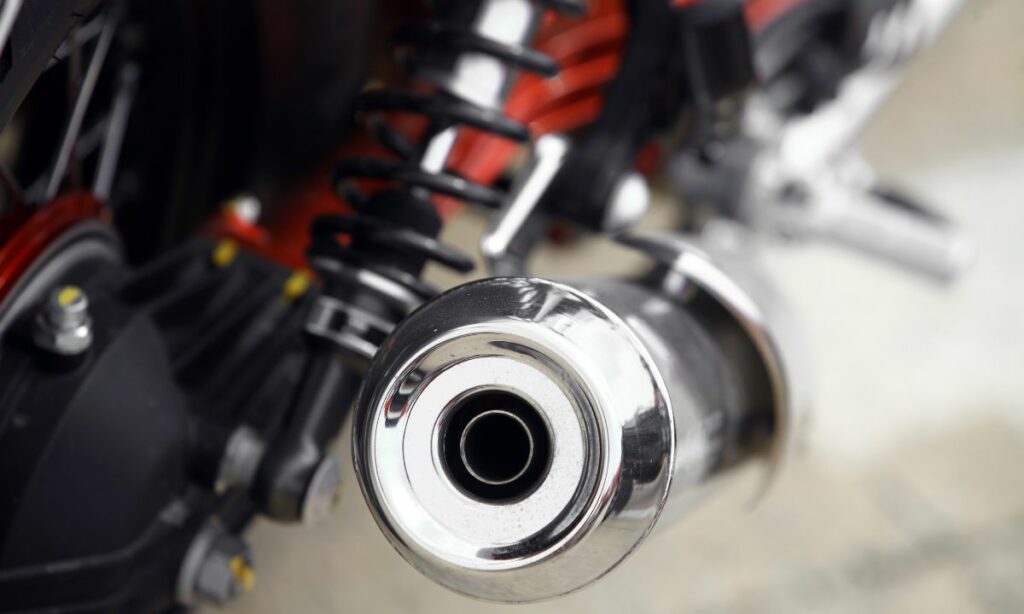
When the airflow is minimal in the exhaust, there is no cause for fuel detonation within the exhaust system.
Exhaust popping is most commonly seen in motorcycles with carburetors and hardly occurs in fuel injection systems.
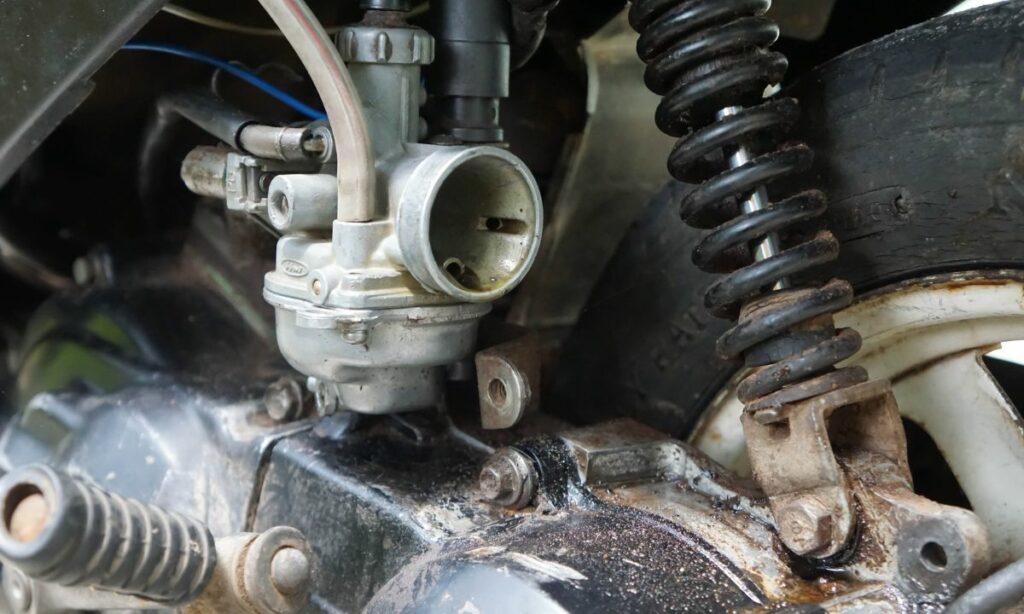
As discussed earlier, the fuel injection system continuously adjusts the air-fuel ratio based on the data it receives from various sensors.
For these reasons, motorcycles with fuel injection systems do not face the problem of exhaust popping much.
Also, modern motorcycles have robust mufflers in their exhaust system. These mufflers act as barricades to restrict the air flowing into the exhaust from the pipe opening.
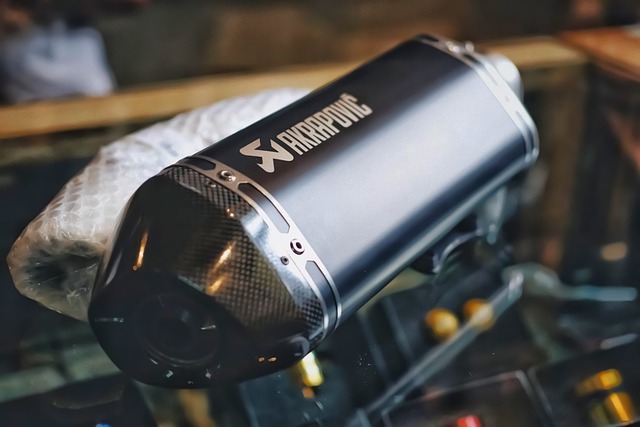
As a result, motorcycles with fuel injectors or low low-flowing exhaust systems, or robust mufflers – do not face exhaust popping much in them.
Does exhaust popping hurt your motorcycle?
When the unburnt fuel in the exhaust reacts with hot air to detonate in the exhaust system, the heat released due to detonation will affect the exhaust pipe over time.
Exhaust systems have temperature limits as well. They can withstand the temperature of the exhaust gases coming from the engine.
However, with too much high temperatures in the exhaust, the exhaust pipes will start feeling the impact.
The impact will most commonly be seen in the form of bluing or coloring of the pipe.
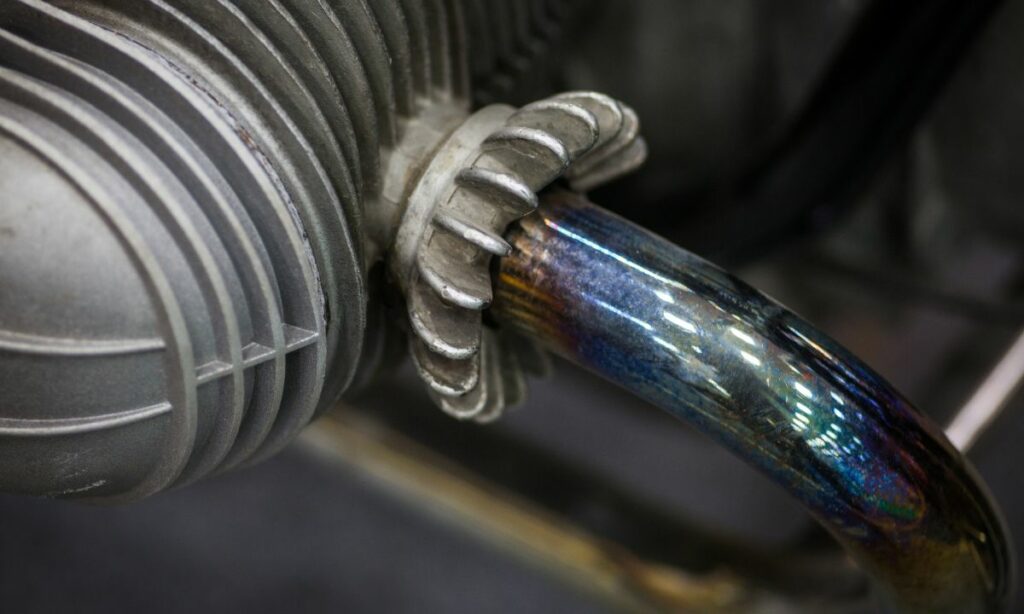
The exhaust pipe when subjected to high temperatures, forms an oxidized layer due to the extreme heat. This oxidized layer results in the coloring of the exhaust pipes.
The most common color formed is blue. Hence, the term, bluing of exhaust pipes. Apart from blue, the metal pipe can also turn yellow or orange.
Apart from the exhaust pipe coloring in the long term, there is no other material impact because of exhaust popping.
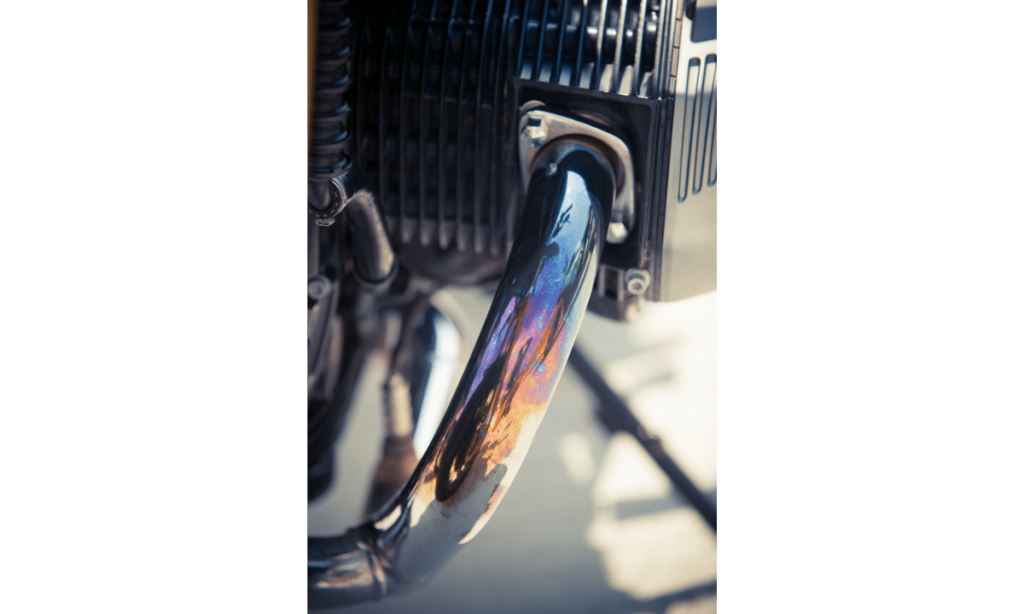
Exhaust popping does not hurt your motorcycle. The only problem of bluing or coloring of the pipe can also be easily taken care of.
Another effect of exhaust popping is the noise it produces.
If you live in a peaceful neighborhood, the loud noise coming from popping might get annoying both to you as well as the neighbors. So, you might want to address this minor inconvenience.
That brings us to our next section.
How to fix exhaust popping
Except for motorcycles with extremely high-flowing exhaust, the popping sound can be tuned out by adjusting the tuning of the carburetor.
In most cases, the carburetor can be adjusted to reduce the popping significantly.
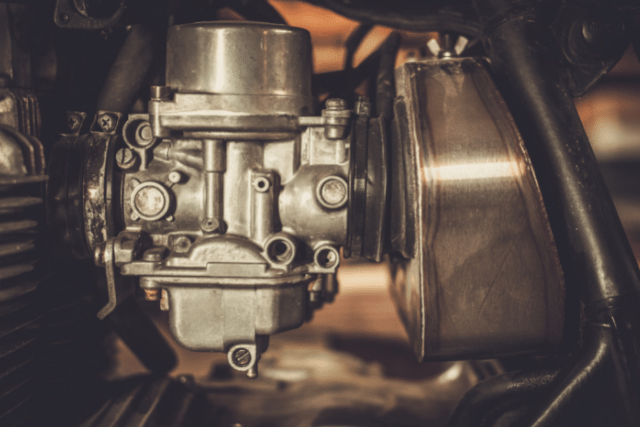
To tune the carburetor, note down the speed or rpm at which deceleration popping occurs. Next, dismantle the carburetor from the motorcycle and clean it up.
Once cleaned, tune your carb to the optimal air-fuel mixture.
Here is a video that guides on carburetor tuning.
Another solution can be, to change the exhaust pipe if the current one is short and has a large opening.
However, this is not at all recommended since exhaust popping is not a big concern, and replacing exhaust pipes is expensive.
So, just tune the carburetor to reduce the exhaust popping. No need to go for replacing the exhaust pipes.
If the popping persists, check the spark plug, ignition wiring, and air cleaner.
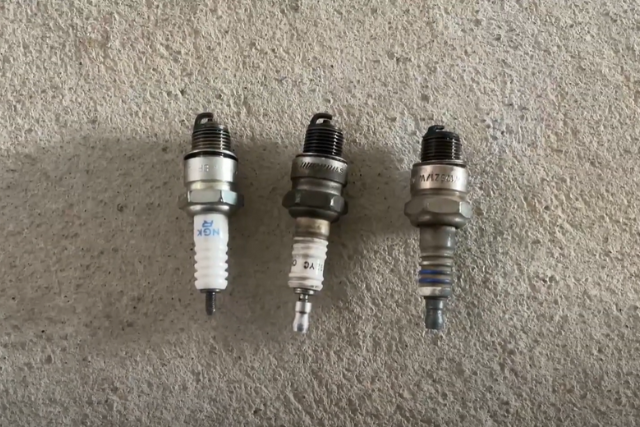
Check and fix any vacuum leak from the exhaust header.
Also, check the exhaust port gaskets and studs that hold the exhaust pipes.
In conclusion
Exhaust popping occurs when unburnt fuel reacts with hot excessive air in a high-flowing exhaust system.
Popping does not hurt your motorcycle except for bluing or coloring of the exhaust pipe if persists for a long time.
To reduce the popping, tune the carburetor for an optimal air-fuel mix ratio. There is no need to replace the exhaust pipes.
Before you go…
Here are a few more exhaust related articles for you:
